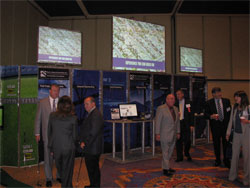California Builders Right To Repair Current Law Summary:
Current Law Summary: SB800 (codified as Civil Code §§895, et seq) is the most far-reaching, complex law regulating construction defect litigation, right to repair, warranty obligations and maintenance requirements transference in the country. In essence, to afford protection against frivolous lawsuits, builders shall do all the following:A homeowner is obligated to follow all reasonable maintenance obligations and schedules communicated in writing to the homeowner by the builder and product manufacturers, as well as commonly accepted maintenance practices. A failure by a homeowner to follow these obligations, schedules, and practices may subject the homeowner to the affirmative defenses.A builder, under the principles of comparative fault pertaining to affirmative defenses, may be excused, in whole or in part, from any obligation, damage, loss, or liability if the builder can demonstrate any of the following affirmative defenses in response to a claimed violation:
Construction Expert Witness Contractors Licensing
Guidelines Anaheim California
Commercial and Residential Contractors License Required.
Construction Expert Witness Contractors Building Industry
Association Directory
Local # 0532
77570 Springfield Ln Ste E
Palm Desert, CA 92211
http://www.desertchapter.com
Building Industry Association Southern California - Riverside County Chapter
Local # 0532
3891 11th St Ste 312
Riverside, CA 92501
Building Industry Association Southern California
Local # 0532
17744 Sky Park Circle Suite 170
Irvine, CA 92614
http://www.biasc.org
Building Industry Association Southern California - Orange County Chapter
Local # 0532
17744 Skypark Cir Ste 170
Irvine, CA 92614
http://www.biaoc.com
Building Industry Association Southern California - Baldy View Chapter
Local # 0532
8711 Monroe Ct Ste B
Rancho Cucamonga, CA 91730
http://www.biabuild.com
Building Industry Association Southern California - LA/Ventura Chapter
Local # 0532
28460 Ave Stanford Ste 240
Santa Clarita, CA 91355
Building Industry Association Southern California - Building Industry Association of S Ca Antelope Valley
Local # 0532
44404 16th St W Suite 107
Lancaster, CA 93535
Construction Expert Witness News and Information
For Anaheim California
Hovnanian Increases Construction Defect Reserves for 2012
BHA Expands Construction Experts Group
New OSHA Fall Rules to Start Early in Minnesota
Public Relations Battle over Harmon Tower
Ohio Court Finds No Coverage for Construction Defect Claims
After Construction Defect Case, Repairs to Austin Building
Is There a Conflict of Interest When a CD Defense Attorney Becomes Coverage Counsel Post-Litigation?
Builder Waits too Long to Dispute Contract in Construction Defect Claim
Although Property Damage Arises From An Occurrence, Coverage Barred By Business Risk Exclusions
Arizona Supreme Court Confirms Eight-Year Limit on Construction Defect Lawsuits
Will They Blow It Up?
Retaining Wall Contractor Not Responsible for Building Damage
Destruction of Construction Defect Evidence Leads to Sanctions against Plaintiff
Court finds subcontractor responsible for defending claim
One Colorado Court Allows Negligence Claim by General Contractor Against Subcontractor
Unlicensed Contractors Nabbed in Sting Operation
Texas “Loser Pays” Law May Benefit Construction Insurers
Home Repair Firms Sued for Fraud
Architectural Firm Disputes Claim of Fault
General Contractors Must Plan to Limit Liability for Subcontractor Injury
Insurance Company Must Show that Lead Came from Building Materials
Construction Suit Ends with Just an Apology
Micropiles for bad soil: a Tarheel victory
Cogently Written Opinion Finds Coverage for Loss Caused By Defective Concrete
Denver Court Rules that Condo Owners Must Follow Arbitration Agreement
Home Sales Still Low, But Enough to Spur Homebuilders
Orange County Home Builder Dead at 93
Contractor Burns Down Home, Insurer Refuses Coverage
Pipes May Be Defective, But Owners Lack Standing
Another Guilty Plea in Las Vegas HOA Scandal
Vegas Hi-Rise Not Earthquake Safe
Exclusions Bar Coverage for Damage Caused by Chinese Drywall
Contractor Underpaid Workers, Pocketed the Difference
Court Rules on a Long List of Motions in Illinois National Insurance Co v Nordic PCL
Ensuing Losses From Faulty Workmanship Must be Covered
An Upward Trend in Commercial Construction?
Residential Construction: Shrinking Now, Growing Later?
South Carolina Legislature Defines "Occurrence" To Include Property Damage Arising From Faulty Workmanship
Manhattan Developer Breaks Ground on $520 Million Project
Read Her Lips: “No New Buildings”
Construction Bright Spot in Indianapolis
Alaska Supreme Court Dismisses Claims of Uncooperative Pro Se Litigant in Defect Case
Insurance for Defective Construction Now in Third Edition
California insured’s duty to cooperate and insurer’s right to select defense counsel
Summary Judgment in Construction Defect Case Cannot Be Overturned While Facts Are Still in Contention in Related Cases
CC&Rs Not the Place for Arbitration Agreement, Court Rules
Construction Law Client Alert: Hirer Beware - When Exercising Control Over a Job Site’s Safety Conditions, You May be Held Directly Liable for an Independent Contractor’s Injury
No Resulting Loss From Deck Collapsing Due to Rot
Battle of “Other Insurance” Clauses
California Supreme Court to Examine Arbitration Provisions in Several Upcoming Cases
Pennsylvania Court Extends Construction Defect Protections to Subsequent Buyers
Construction Defect Journal Marks First Anniversary
Georgia Law: “An Occurrence Can Arise Where Faulty Workmanship Causes Unforeseen or Unexpected Damage to Other Property”
Homeowners Not Compelled to Arbitration in Construction Defect Lawsuit
Construction Workers Face Dangers on the Job
Ensuing Loss Provision Does Not Salvage Coverage
Changes to Arkansas Construction and Home Repair Laws
Florida County Suspends Impact Fees to Spur Development
Faulty Workmanship Exclusion Does Not Bar Coverage
FHA Lists Bridges and Overpasses that May Have Defective Grout
Insurers Reacting to Massachusetts Tornadoes
$5 Million Construction Defect Lawsuit over Oregon Townhomes
Liability policy covers negligent construction: GA high court
Policyholder Fails to Build Adequate Record to Support Bad Faith Claim
Building Boom Leads to Construction Defect Cases
California Bill Would Notify Homeowners on Construction Defect Options
Death of Construction Defect Lawyer Ruled a Suicide
Residential Construction Down in San Diego
Pictorial Construction Terminology Dictionary — A Quick and Helpful Reference
Driver’s Death May Be Due to Construction Defect
School District Settles Construction Lawsuit
Contractual Liability Exclusion Bars Coverage
Eighth Circuit Remands to Determine Applicability of Collapse Exclusion
Judge Rejects Extrapolation, Harmon Tower to Remain Standing
HOA Has No Claim to Extend Statute of Limitations in Construction Defect Case
Anti-Concurrent Causation Clause Bars Coverage for Landslide and Water Leak
Construction Company Head Pleads Guilty to Insurance and Tax Fraud
Oregon agreement to procure insurance, anti-indemnity statute, and self-insured retention
Allowing the Use of a General Verdict Form in a Construction Defect Case Could Subject Your Client to Prejudgment Interest
Insurer Rejects Claim on Dolphin Towers
Important Information Regarding Colorado Mechanic’s Lien Rights.
More Charges in Las Vegas HOA Scandal
Texas Windstorm Insurance Agency Under Scrutiny
Court Grants Summary Judgment to Insurer in HVAC Defect Case
Texas Law Bars Coverage under Homeowner’s Policy for Mold Damage
Court Will Not Compel Judge to Dismiss Construction Defect Case
South Carolina Legislature Redefining Occurrences to Include Construction Defects in CGL Policies
El Paso Increases Surety Bond Requirement on Contractors
Crane Dangles and So Do Insurance Questions
Insurance Firm Defends against $22 Million Claim





























































